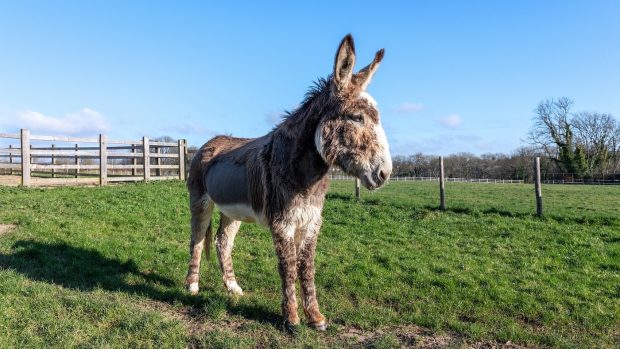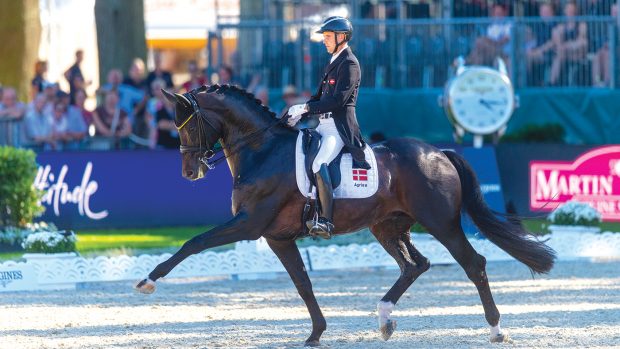New research into decision-making for critical colic cases has highlighted how individual each situation is, the long-term impact on owners and why planning for it is so important.
The study, published in the British Equine Veterinary Association’s Equine Veterinary Journal on 25 June, involved telephone interviews with 14 owners and 13 vets.
“The survival of horses diagnosed with critical colic (requiring referral or euthanasia) relies on rapid and effective decision-making by the owner and veterinary practitioner,” the study states.
Researcher Katie Burrell worked with John Burford, Gary England and Sarah Freeman, all of the University of Nottingham’s veterinary school, to identify the four overarching themes owners and vets are faced with in these situations. These were the influences of “head”, “heart”, “practicalities” and “impact”.
“Owners acknowledged responsibility for their horses’ welfare, but had different perspectives to vets on the importance of finance (head),” states the study.
“Both vets and owners described how the horse-human relationship (heart) often led to conflict during decision-making.
“The vet-client relationship was influential on decision-making for both owners and vets; involving other people in decision-making was described both positively and negatively by participants (heart).
“Practicalities, such as lack of preparedness, transport issues and adverse weather conditions, were identified by both owners and vets as barriers.
“Owners described a ‘rollercoaster’ of emotions after a critical decision, with profound impacts on their mental wellbeing, feelings of guilt and long-term changes in behaviour (impact), and a lack of support to manage these feelings.”
It concluded that common influences included an owner’s previous knowledge and beliefs, social pressures, logistics and the owner-vet relationship.
One major finding was the long-term impacts on the owner, including on management and decisions for subsequent horses. But also the emotional long-term effect of colic on owners – and that this was not limited to those who had lost a horse.
“It is a difficult situation, as is every emergency situation, but colic in particular because of the misconceptions and stories that go with it,” Dr Burrell told H&H.
“It’s difficult both for the owner and the vet. For the veterinary professionals involved, it can be incredibly stressful and emotive for them as well, and additionally for anyone else involved.”
She added: “It is a very individual process. They might have things going on in their life which will influence the decisions that they make – they might not realise that, but they do have an impact.
“I think sometimes horse owners sometimes feel like we are one big group and all should be making the same decision. But I think owners should realise and be comfortable in making their own decision that’s right for them and their horse, and making that with their vet.”
The emotive nature of a colic emergency was seen as a barrier to effective communication, with vets acknowledging that the discussion of treatment and prognosis is often challenging. Owners feeling able to ask questions without fear of being judged; vets better understanding what is going on in an owner’s mind to be able to make the best decision for them and the horse, and having support to lean on were all key points.
Professor Freeman said owners might not offer information about previous traumatic experiences – whether with their own horse or events they have witnessed – which can be influential on decision-making.
“[It’s a case of] recognising how influential that is and being able to start that conversation, as sometimes you don’t know why people are making decisions,” said Professor Freeman.
“They don’t want to talk about it because they’re upset, so it’s actually just finding that way of just opening the conversation and allowing people to say, ‘Actually, this is really important to me’ or ‘I’m really worried about this.’”
The study found that owners’ lack of preparedness to make rapid decisions was “frequently discussed by both owners and vets”.
“Participating vets reported that a high number of owners had never considered what they would do if their horse was critically ill, and that even those who had thought about decisions in advance often became conflicted in an emergency,” it states.
Dr Burrell recommends owners think about having a plan for colic and a rough idea of what is, and what is not possible, in terms of treatment. She added that some owners wanted someone in that situation who would help “ground them” and to think, and re-think, about what their plan is, to ensure that is the outcome they want.
She shared practical steps that all owners should think about, such as knowing where the horse’s passport is, their insurance details and transport situation, so they do not have to worry about logistics when faced with bigger, harder decisions at a critical time.
“It comes back to that emergency plan and just making sure owners are practically prepared – not just for colic but for any sort of emergency – so it’s almost second nature,” she said.
You might also be interested in:

‘We’re delighted to bring loyal readers this benefit’: H&H magazine subscribers get free website access

Colic in horses: what every horse owner needs to know
Horse & Hound magazine, out every Thursday, is packed with all the latest news and reports, as well as interviews, specials, nostalgia, vet and training advice. Subscribe today and enjoy the magazine delivered to your door every week, plus unlimited website access and digital versions of the magazine dating back to September 2012.





